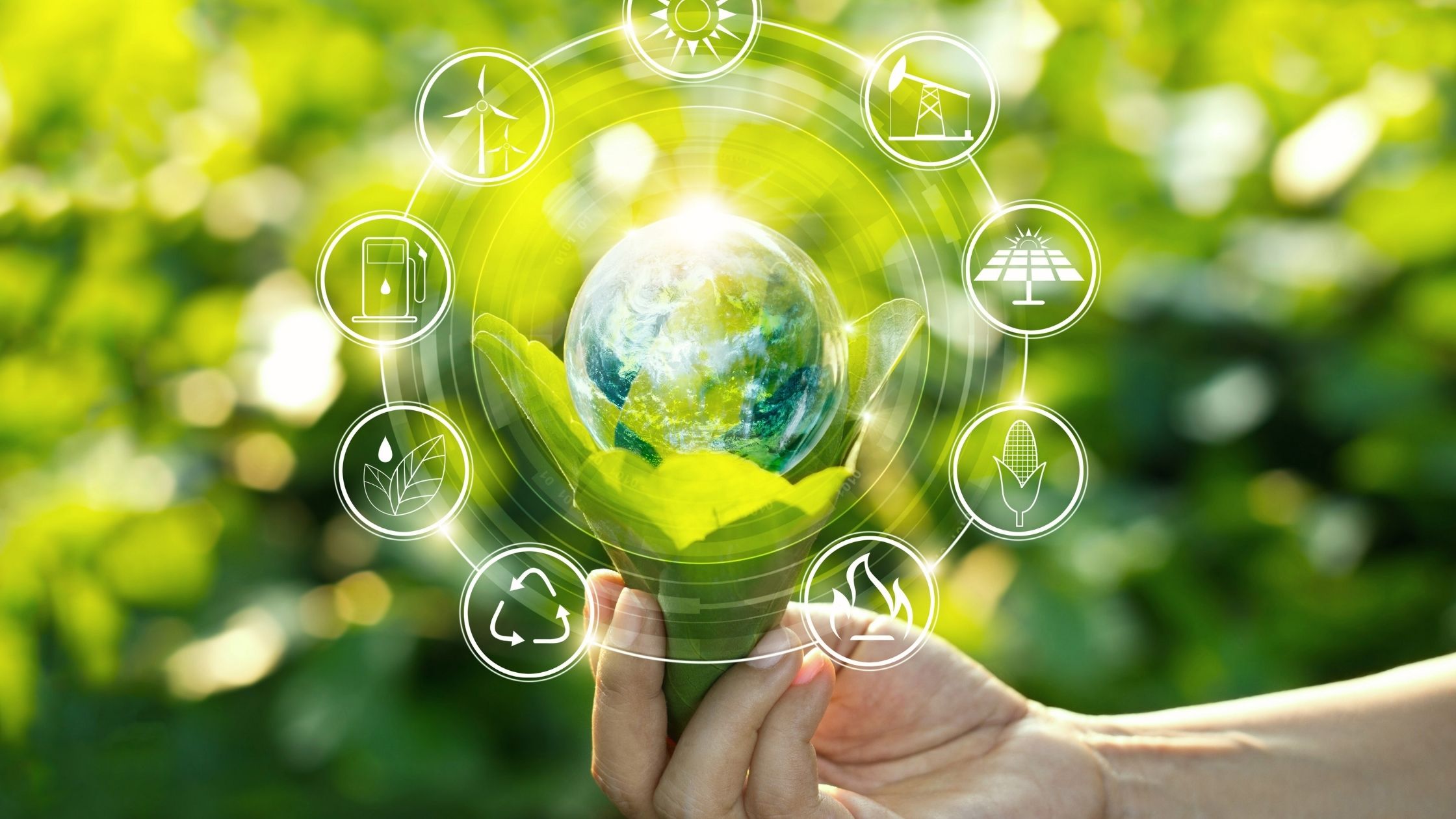Advantages And Disadvantages of Renewable Energy
In society’s energy supply, it is important to balance three factors:
- competitiveness,
- security of supply,
- environment and climate.
No single energy source is perfect from these three angles. Let’s see below the main advantages and disadvantages of the different sources of energy.
Advantages and disadvantages of wind energy
Benefits
- Wind energy does not release any carbon dioxide during its life cycle.
- There is no need for fuel.
Disadvantages
- Affects the surrounding landscape and causes noise
- Wind dependent
- Huge investment costs
Advantages and disadvantages of hydraulic power
Benefits
- Hydroelectric power generally has no climate or environmental impact.
- Provides stable and large-scale electricity generation.
- Functions as regulating power.
- There is no need for fuel.
- Hydroelectric power plants have a long economic life.
Disadvantages
- Hydroelectric power plants involve major interference in the landscape and affect ecosystems.
- Large investments are needed to build a hydroelectric plant.
Advantages and disadvantages of solar energy
Benefits
- Solar energy has lowered its costs, thanks to its high public support and its low carbon emissions.
- Combined with energy storage and intelligent software solutions, solar energy becomes a reliable and less expensive source of energy.
- An unlimited resource, unlike fossil fuels.
- Solar systems are easy to install and require very little maintenance.
- Solar cell systems have a long lifespan – around 25 years.
Disadvantages
- Solar energy is an intermittent energy battle – electricity production depends on the bright sun.
- It is still expensive, despite the decrease in cost in recent years.
- Sunlight varies by location and season. The forecasts are more uncertain than fossil fuels (but better than those of the wind).
- Non-adjustable and weak combination of production and demand – the sun produces more in summer, while electricity is more needed in winter.
Advantages and disadvantages of biomass energy
Benefits
- Biomass is a stable source of energy with geographically well-diversified assets and little political risk.
- By using biomass in electricity production instead of fossil fuels, CO2 emissions are considerably reduced.
- If the biomass is handled well, it is carbon neutral in the long term.
Disadvantages
- Delivery of larger volumes difficult to secure
- The use of biomass to generate electricity is currently more expensive than the use of energy sources such as coal, gas and nuclear energy.
The advantages of renewable energy
The advantages of renewable energies are numerous because they are generally clean, safe and above all, they exist in unlimited quantities (unlike fossil fuels ).
- Safety: By using most of them, we would find climatic, economic, environmental and social stability especially by developing large thermal power plants. Safety is one of the main advantages, as there is a very low risk of an accident.
- Little waste: They also generate little waste, and this waste is sometimes recyclable.
- The decentralization of renewable energies is also a very important positive factor for developing certain territories and local development. The labor market for these energies represents almost one million two hundred thousand jobs, mainly in the photovoltaic, wind and biomass industries. These energies respect the environment during their manufacture, their operation and during their end of life, at the time of their dismantling.
To sum up, these renewable energies make it possible to considerably reduce the emission of CO2. They would also not generate hazardous radioactive waste and their resources would be endless thanks to the wind, water and sun. Studies carried out claim that in theory, the planet could be entirely powered by renewable energies by using only a 500,000 km square including solar panels. This surface represents approximately that of Spain. This vision produced by renewable energies is attractive a priori, but it masks many disadvantages.
The disadvantages of renewable energy
- Their availability depends on the climate. For those running on solar, it is only possible to use 50% of their real capacity in the equatorial zones and even less because of the disappearance of the sun for several months in the poles. In addition, when the sky is cloudy, the solar radiation is less. During high periods, there is no wind. This energy is not very stable.
- The responsibility for the global warming of renewable energies is a major drawback. They are often presented and accepted to precisely solve this problem, but for this to be real, it would be necessary to considerably reduce the consumption of fossil energies like oil, coal or gas and to better control renewable energy to save it more.
- The visual impact on the landscape must be taken into account especially when building large solar power plants or wind turbine fields. These decentralized productions would help reduce the number of high-voltage lines. They, therefore, remain a pollution for wildlife. In addition, the experiences already carried out in certain countries show that they help to increase these same lines.
- The major problems for wildlife are hydroelectric dams, as they flood entire valleys and have a strong negative impact on the ecosystem. Fish hardly migrate to their breeding grounds – even if fishways have been built. Wind turbines are a danger to birds and bats.
Renewable energies to replace oil
Whether by sun, wind, or sea water, renewable energies are used to produce only one energy: electricity. Today, industrialized societies do not consume only electricity as energy. In our country, the latter is only 24% of our total consumption. Oil occupies an important place with 42% then comes gas and coal. We can already know that renewable energies could replace gas heating for example, but for oil, as things stand, this is not possible because of road and air transport. Thanks to these energies, electricity production is more sustainable, but the problem is only solved by a quarter when we know that oil alone accounts for half of our consumption.
An idea received and wrongly conveyed
Renewable energies are believed to be completely clean, but the reality is quite different. Wind turbines and solar panels do not emit CO2, but their production generates them. To manufacture these energy production tools, it is necessary to extract the raw materials from the ground, then transport the parts and different materials to the assembly places in order to assemble them. During this time, oil is used in quantity which generates a lot of CO2. Even though renewable energies produce less pollution than fossil fuels, they are still far from clean. For example, solar panels produce 10 times less CO2 than gas and 20 times less than coal or petroleum and its derivatives.
The sustainability of renewable energy

The sustainability of renewable energy is quite complex. Even if these are less polluting in terms of greenhouse gases, they are the cause of many problems to generalize them on the planet. They cannot replace the consumption of petroleum used in transport and industry. In addition, they are still very intermittent in the large countries, as the latter does not have enough hydroelectric or nuclear equipment to stabilize their production.
Thus, it does not seem possible for a large industrialized country to substitute fossil fuels with renewable energies in a viable way. So that a project can see the light of day, current energy consumption, especially in transport, should be considerably reduced in order to limit the use of petroleum as much as possible. To do this, we would have to find an alternative to private vehicles, individual heaters and reduce the energy needs of various industries which are very energy-consuming.
All individuals, businesses, industries, and other communities have an electricity and gas subscription from a traditional electricity and gas supplier. Today, renewable energies are diversifying and appearing all over the world, because humans are realizing that fossil fuels are not inexhaustible resources and that some of them are partially dangerous for the planet. In addition, electricity and gas prices are becoming more and more expensive, although we find more and more attractive contracts with a green electricity supplier.
Renewable energies are perhaps a partial solution for the future of humanity and the planet. Even if they are the most promising solution currently in terms of environment and ecology, they are also less catastrophic than fossil fuels which will have no future in a few decades. These renewable energies are the transition that we know and know how to control. They, therefore, seem inevitable, but not necessarily viable as we know how to control them today.
We must not only invest in solar today to build more tomorrow and at the same time consume less energy. For them to be more efficient, humanity would also have to create fewer needs in this area. So are they a good development for our future or one of the utopias of tomorrow? It is up to each of us to make a difference. they are also less catastrophic than fossil fuels which will have no future in a few decades. These renewable energies are the transition that we know and know how to control.
They, therefore, seem inevitable, but not necessarily viable as we know how to control them today. We must not only invest in solar today to build more tomorrow and at the same time consume less energy. For them to be more efficient, humanity would also have to create fewer needs in this area. So are they a good development for our future or one of the utopias of tomorrow? It is up to each of us to make a difference. They are also less catastrophic than fossil fuels which will have no future in a few decades.
These renewable energies are the transition that we know and know how to control. They, therefore, seem inevitable, but not necessarily viable as we know how to control them today. We must not only invest in solar today to build more tomorrow and at the same time consume less energy. For them to be more efficient, humanity would also have to create fewer needs in this area. So are they a good development for our future or one of the utopias of tomorrow? It is up to each of us to make a difference. They, therefore, seem inevitable, but not necessarily viable as we know how to control them today.
We must not only invest in solar today to build more tomorrow and at the same time consume less energy. For them to be more efficient, humanity would also have to create fewer needs in this area. So are they a good development for our future or one of the utopias of tomorrow? It is up to each of us to make a difference. They, therefore, seem inevitable, but not necessarily viable as we know how to control them today. We must not only invest in solar today to build more tomorrow and at the same time consume less energy. For them to be more efficient, humanity would also have to create fewer needs in this area.
So are they a good development for our future or one of the utopias of tomorrow? It is up to each of us to make a difference. So are they a good development for our future or one of the utopias of tomorrow? It is up to each of us to make a difference. So are they a good development for our future or one of the utopias of tomorrow? It is up to each of us to make a difference.
Choosing a green energy supplier
Plural Gas and Electricity provide the best gas and electricity all over the UK. Click here to get a quote from us and enjoy the best gas and electricity at the best price!
- Solar Panel Maintenance And Cleaning Tips You Must Know - January 5, 2023
- Tips For Zero Waste Living in 2023 - January 2, 2023
- What Is Condensing Boiler and Why Do You Need It? - December 11, 2022

